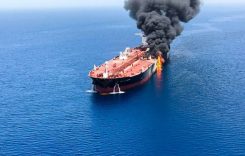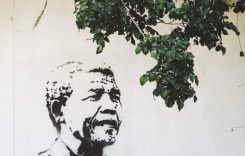Qassem Soleimani, a leader of the Revolutionary Guards, the ideological army of the Islamic Republic, was killed Friday January 3 in an American strike in Baghdad that unleashed the fury of Tehran.
Powerful Iranian General Qassem Soleimani, the Islamic Republic’s envoy to Iraq, and a pro-Iranian leader were killed early Friday, January 3, in a U.S. raid on Baghdad. An “extremely dangerous escalation” according to Iran, which comes three days after the unprecedented attack on the American embassy. Tehran has already promised revenge.
“There is no doubt that the great nation of Iran and other free nations in the region will take revenge on criminal America for this horrible murder,” President Hassan Rohani promised in a statement posted on the government website.
By order of Donald Trump
Shortly after the operation, the Pentagon announced that U.S. President Donald Trump himself had given the order to “kill” Soleimani, a leader of the Revolutionary Guards, the ideological army of the Islamic Republic. Abu Mehdi al-Mouhandis, number two of the Hachd al-Chaabi, a coalition of paramilitaries mostly pro-Iran now integrated into the Iraqi State, also died in this bombing.
This is “the largest “beheading” operation ever conducted by the United States, more than those that killed Abu Bakr al-Baghdadi or Osama Bin Laden,” the heads of the Islamic State (IS) and al-Qaeda groups, commented Phillip Smyth, an American specialist on armed Shiite groups.
While Iranian Foreign Minister Mohammad Javad Zarif saw this as an “extremely dangerous and reckless escalation”, a former leader of the Revolutionary Guard, Mohsen Rezai, promised that “revenge on America” would be “terrible”.
Dozens of Iraqis who have been bemoaning the government in Baghdad and its Iranian godfather for more than three months are singing and dancing on Friday morning in the Iraqi capital’s Tahrir Square, an AFP photographer said. “Qassem Soleimani, the divine victory has arrived,” chanted the demonstrators.
“A flagrant example of American terrorism”
On Friday, Iran summoned an official from the Swiss embassy representing US interests in Tehran in the absence of diplomatic relations between the two countries following the death of General Qassem Soleimani.
This diplomat was told that “the assassination of General Soleimani” was a “flagrant example of American state terrorism, and that the American regime was fully responsible for its consequences,” Iranian Foreign Ministry spokesman Abbas Moussavi said on Twitter.
For years, Baghdad has been caught between its two great allies, the United States and Iran, themselves at the heart of growing tensions over the nuclear issue. By overthrowing Saddam Hussein’s regime in 2003, the United States had taken control of Iraqi affairs.
But the system that it put in place is now drowned out by Tehran and pro-Iran movements. The latter have assembled an unequalled arsenal thanks to Tehran but also over the years of fighting, alongside the Americans in particular, against the EI.
On Tuesday, these same parties succeeded in attacking the American embassy in Baghdad, in the ultra-secure Green Zone in Baghdad.
“If you want more, you’ll get more.”
The American strike on Friday morning comes in the wake of this attack, but also of a series of rocket attacks against its diplomats and soldiers that has been going on for weeks. Unclaimed, they have been attributed by Washington to pro-Iran forces in Iraq.
“At the president’s behest, the U.S. military took decisive defensive action to protect U.S. personnel abroad by killing Qassem Soleimani,” the Pentagon said in a statement. Donal Trump did not comment immediately but posted an image of an American flag on his Twitter account.
“I appreciate President Donald Trump’s courageous action against the Iranian aggression,” said influential Republican Senator Lindsey Graham, a close ally of the president, shortly after the Pentagon confirmed that the White House tenant had given the order to kill Iranian General Qassem Soleimani in a raid in Baghdad. “To the Iranian government: If you want more, you’ll get more,” he threatened.
Like the South Carolina man, the Republicans were closing ranks on Thursday night behind the American president’s strategy. “The defensive actions that the United States has taken against Iran and its proxies are consistent with the clear warnings they have received. They chose to ignore these warnings because they believed that the President of the United States was prevented from acting because of our internal political divisions. They assessed extremely poorly,” also praised Republican Senator Marco Rubio.
But while the US Congress was not notified prior to the raid according to a Democratic Congressman, the consequences of the targeted assassination of one of Iran’s most popular figures raised the concern of other parliamentarians, less than a year away from the US presidential election. “President Trump is bringing our nation to the brink of an illegal war with Iran without congressional approval,” said Senator Tom Udall, a Democrat senator.
Candidates in the Democratic primary for the November presidential election also denounced the bombing and the risk of escalation with Iran. “President Trump has just thrown a stick of dynamite into a powder keg, and he owes the American people an explanation,” said former Vice President Joe Biden. “This is a huge escalation in an already dangerous region,” Biden said in a statement.
“Trump’s dangerous escalation brings us closer to another disastrous war in the Middle East,” said Bernie Sanders, another Democratic primary favorite.
The news caused oil prices to jump more than 4 percent. Iranian black gold is already under American sanctions and the rise in influence of Tehran in Iraq, the second largest producer of Opep, makes experts fear diplomatic isolation and political and economic sanctions.
The American raid, which targeted a convoy of vehicles in the Baghdad airport compound, killed at least nine people in all, according to Iraqi security officials.
The other major figure killed was Abu Mehdi al-Mouhandis, the real operational head of Hashd al-Shaabi and General Soleimani’s lieutenant for Iraq for decades. Both men were under US sanctions and this pro-Iran paramilitary coalition is now the focus of attention in Iraq.
While the Hashd fought from 2014 onwards alongside Iraqi troops and the US-led international anti-Iran coalition, its most pro-Iranian factions (some of them born in the fight against the US occupation from 2003 to 2011) are now considered by the Americans as a greater threat than the EI group.
Proxy battlefield
On Tuesday, it was his fighters and supporters who, by the thousands, engaged in an unprecedented show of force in Iraq. They stormed Baghdad’s Green Zone, where the American embassy is located, attacked the chancellery with makeshift rams and sprayed unequivocal graffiti on the walls. “No to America,” said one, “Soleimani is my leader,” said another. This unpublished episode










